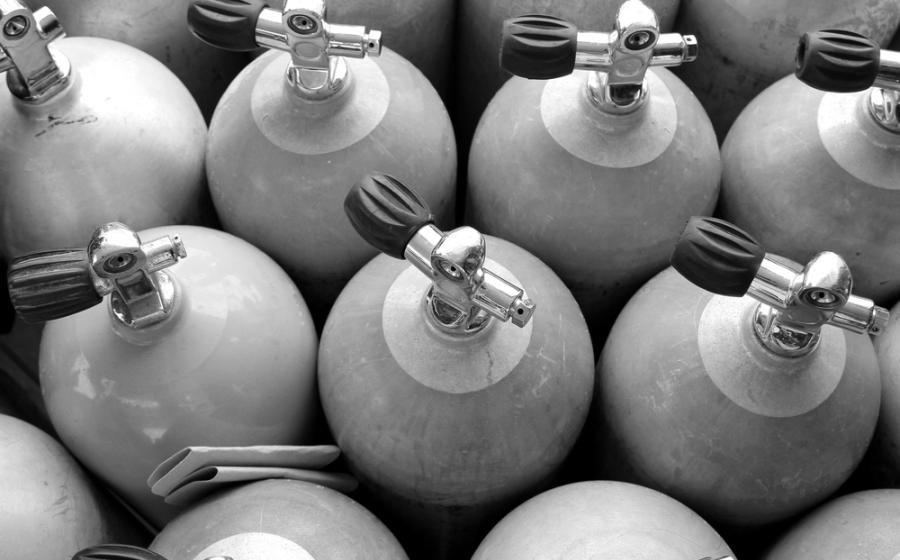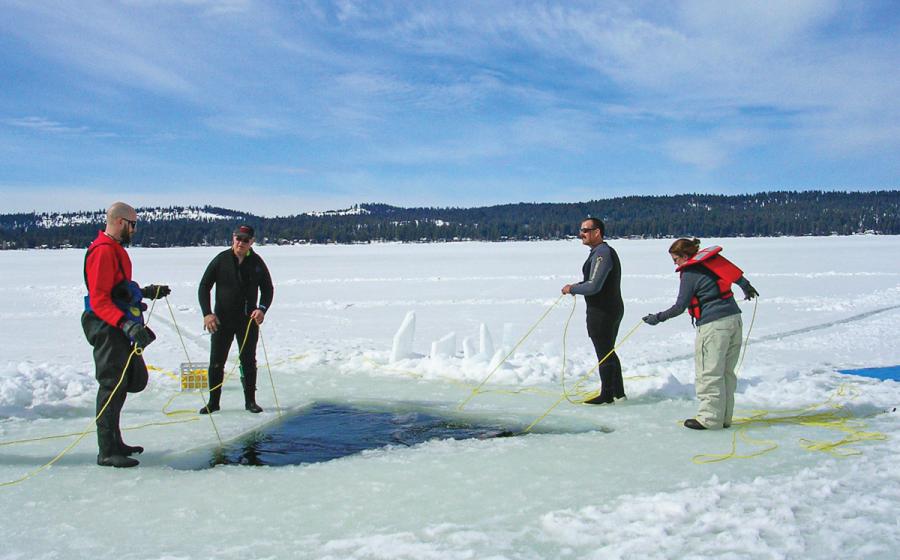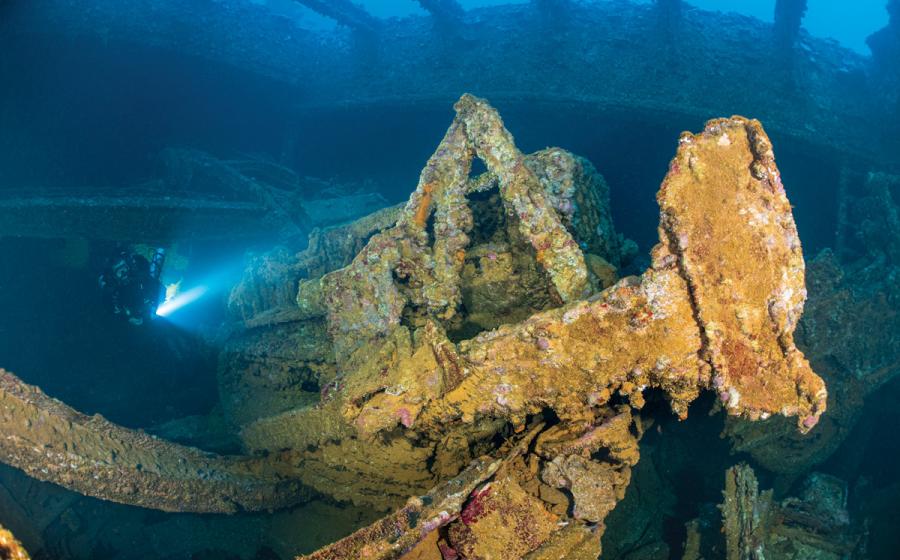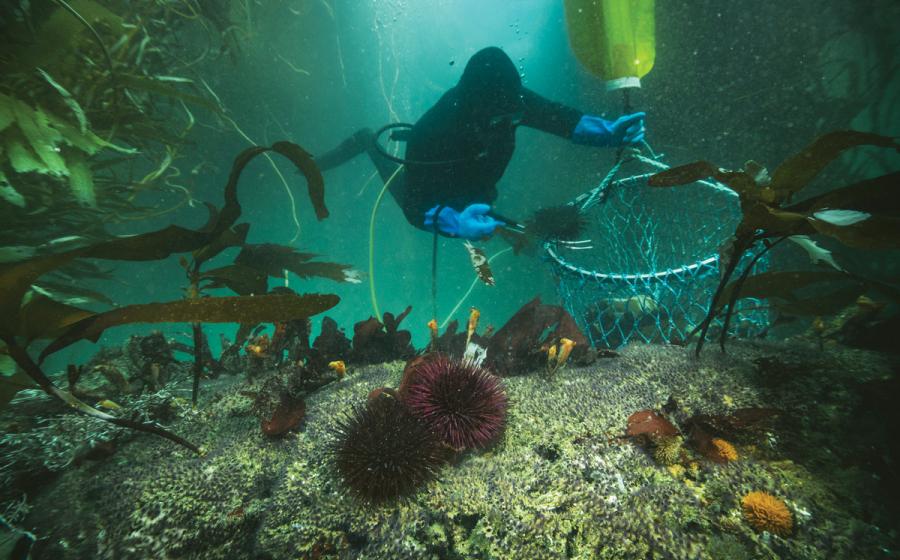Native Caribbean Ocean Advocate Tadzio Bervoets Named August Sea Hero
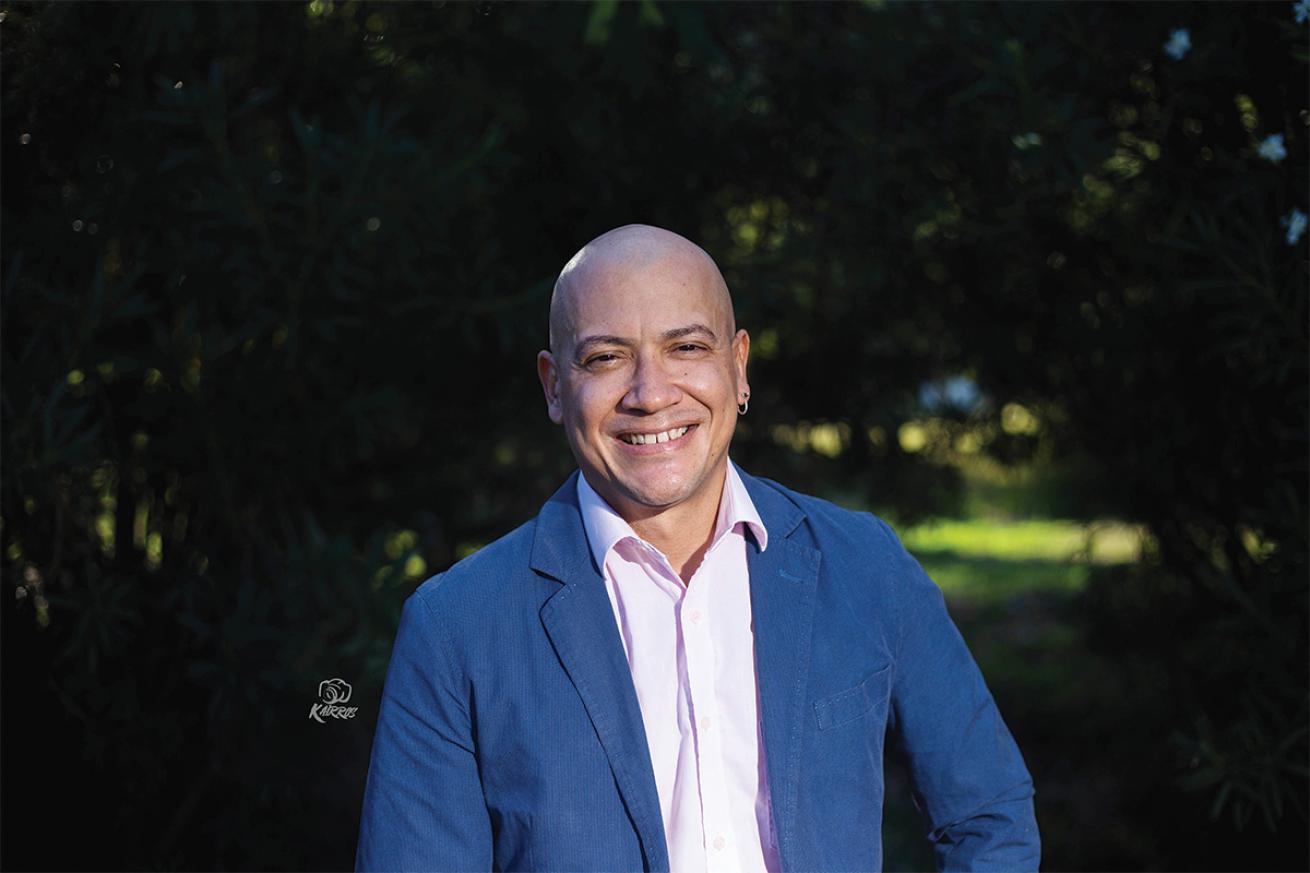
Katie LaToucheTadzio Bervoets
- Year Dive Certified: 1997
- Age When Certified: 15
- Dive Certification Level: Instructor
- Words To Live By: “When one, for whatever reason, has the opportunity to lead an extraordinary life, they have no right to keep it to themselves.” —Jacques Cousteau
- Instagram: @tadziobervoets
Establishing MPAs in his home country of Sint Maarten tops the list for Tadzio Bervoets’ most satisfying moments, but it’s only the tip of the iceberg on a long list of conservation accomplishments. Incentivizing fishermen in Africa to become marine park rangers and co-founding the Caribbean Shark Coalition are also among his favorite projects. As the former director of the Dutch Caribbean Nature Alliance, he continues to support conservation organizations in the region. For his determination and conservation work throughout the Caribbean, Bervoets is our August Sea Hero.
Q: Tell us about your conservation story. What led you back to the Caribbean?
A: I am of mixed heritage, with my mom being from Sint Maarten and my dad being Belgian. When I was very young, we split our time between Europe and the Caribbean.
I can clearly remember how the colors especially affected me, primarily among the blues of the Caribbean Sea. Both of my parents supported my love for the ocean: My dad took us to the beach every day after school, and my mom gifted me my first dive certification when I was 15.
I was one of those kids that was obsessed with sharks growing up, which led me to a wider interest in marine conservation. And scuba diving, of course. After my initial certification, I worked odd jobs at dive shops until I left Sint Maarten for the U.S. to do my undergraduate degree. After graduation I was involved in the dive industry on Sint Maarten with my friend Jesus Ruiz Lopes.
We started a small conservation NGO called Ocean Care, through which we supported conservation initiatives on Sint Maarten through nature education and coral reef surveys. Jesus eventually moved abroad, and I decided to get my Master of Science degree in the Netherlands, where I focused on the management of coral reef ecosystems. This led me to field work in Bermuda and East Africa, but eventually I moved back to the Caribbean to become the MPA manager for St. Eustatius.
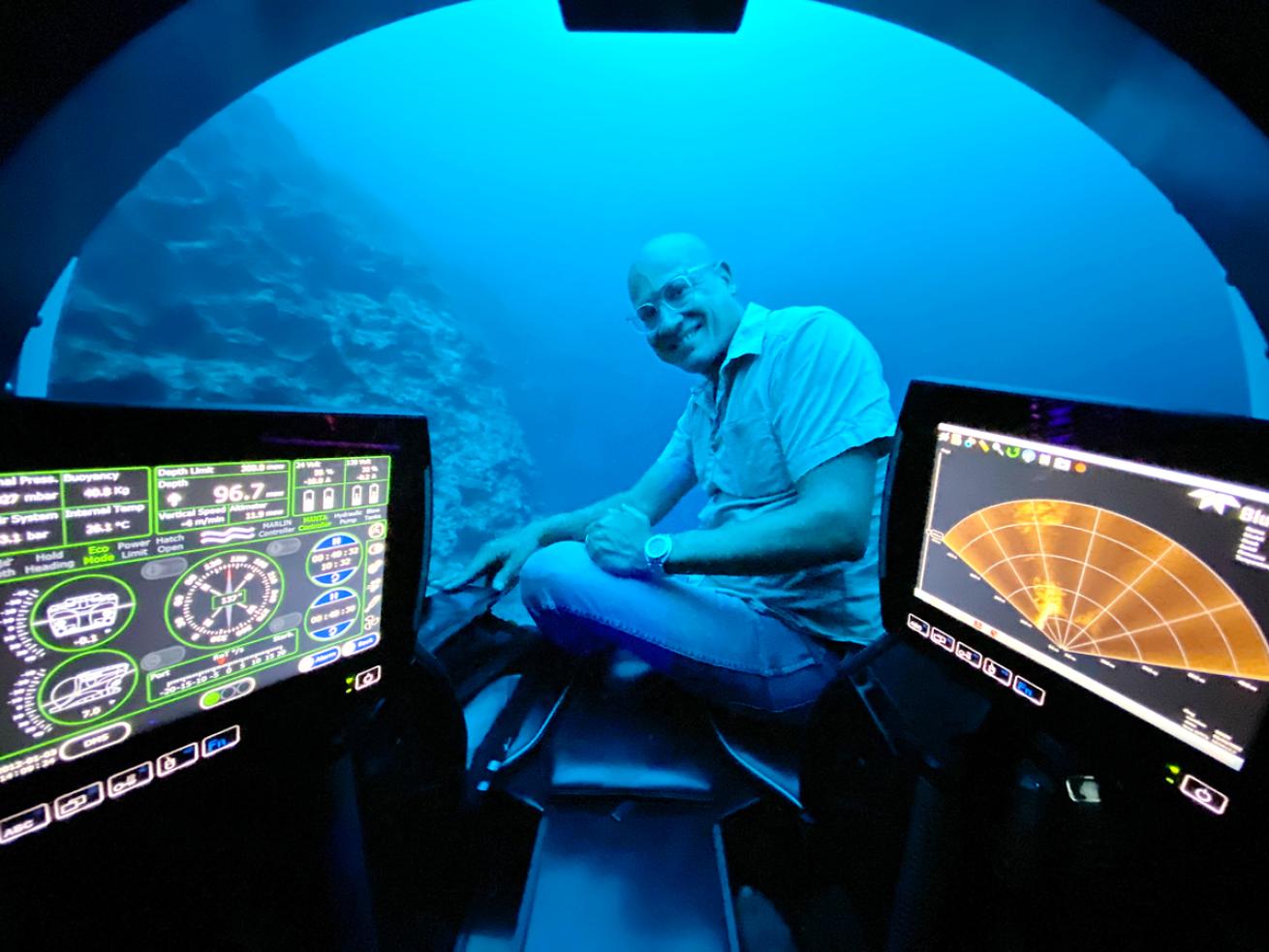
Uboatworx CaribbeanBervoets conducting a deep-reef survey off Curaçao in a submersible.
I was then asked to move to my native Sint Maarten to head the Nature Foundation, and also to establish the marine park. In 2019 I was asked to head the Dutch Caribbean Nature Alliance based on Bonaire.
Officially, my job is to support conservation organizations throughout the Dutch Caribbean, whether it be through project funding, financing, capacity building, research and monitoring support, or communication.
Q: What do you view as the greatest challenges in marine conservation today? How are these challenges reflected in your own work?
A: The greatest challenge for us is still bridging the gap between conservation and poverty alleviation, and creating ownership of marine resources for island communities. Often, conservation work is seen as the realm of expats who struggle with answering serious questions regarding poverty on our islands.
How do we convince a fisherman that it is better to conserve certain species rather than catch it to sell at market or to put a protein source on the table? This is an issue in Jamaica, for example, with the overfishing of parrotfish populations, and in St. Vincent, where they still hunt orca.
We are really trying hard to bridge the gap that has existed for too long between the conservation of species and habitat and the enhancement of island communities and ecosystems.
Q: What work are you doing to connect Caribbean nations in their goal of protecting sharks in the region?
A: We are using various ways of scaling up our conservation support through the Caribbean Shark Coalition. We are planning on hosting a trainer course on best practices for on-site data collection in the fall to provide the tools necessary for the collection of data which will drive sound conservation decision-making. Simultaneously, we will be submitting a proposal to the United Nations Environment program to get various species of shark listed as protected in the wider Caribbean region through the Cartagena Convention and its protocol on Specially Protected Areas and Wildlife in the Wider Caribbean. The Cartagena Convention is the only legally binding marine biodiversity agreement for the wider Caribbean.
Q: Can you elaborate on the blue carbon work you are piloting?
We've partnered with Beneath the Wave's Project Blueprint initiative in assessing the potential for especially mangrove and seagrass areas to act as carbon sinks and get those ecosystems traded on the Carbon Offset Market. Some people consider it greenwashing, but the potential for blue carbon initiatives to protect ecosystems under pressure from coastal development (like mangroves and seagrasses) is huge. If the ecosystem in and of itself can generate revenue essentially self-financing conservation actions to enhance the ecosystem just by existing, it's a win-win. We've piloted this project on Aruba for now and hope to scale up in the coming months to other islands and territories, essentially using the ecosystem's function as a carbon sink to self-finance conservation management actions without having to depend on more traditional models for conservation financing (government subsidy, user fees etc.).
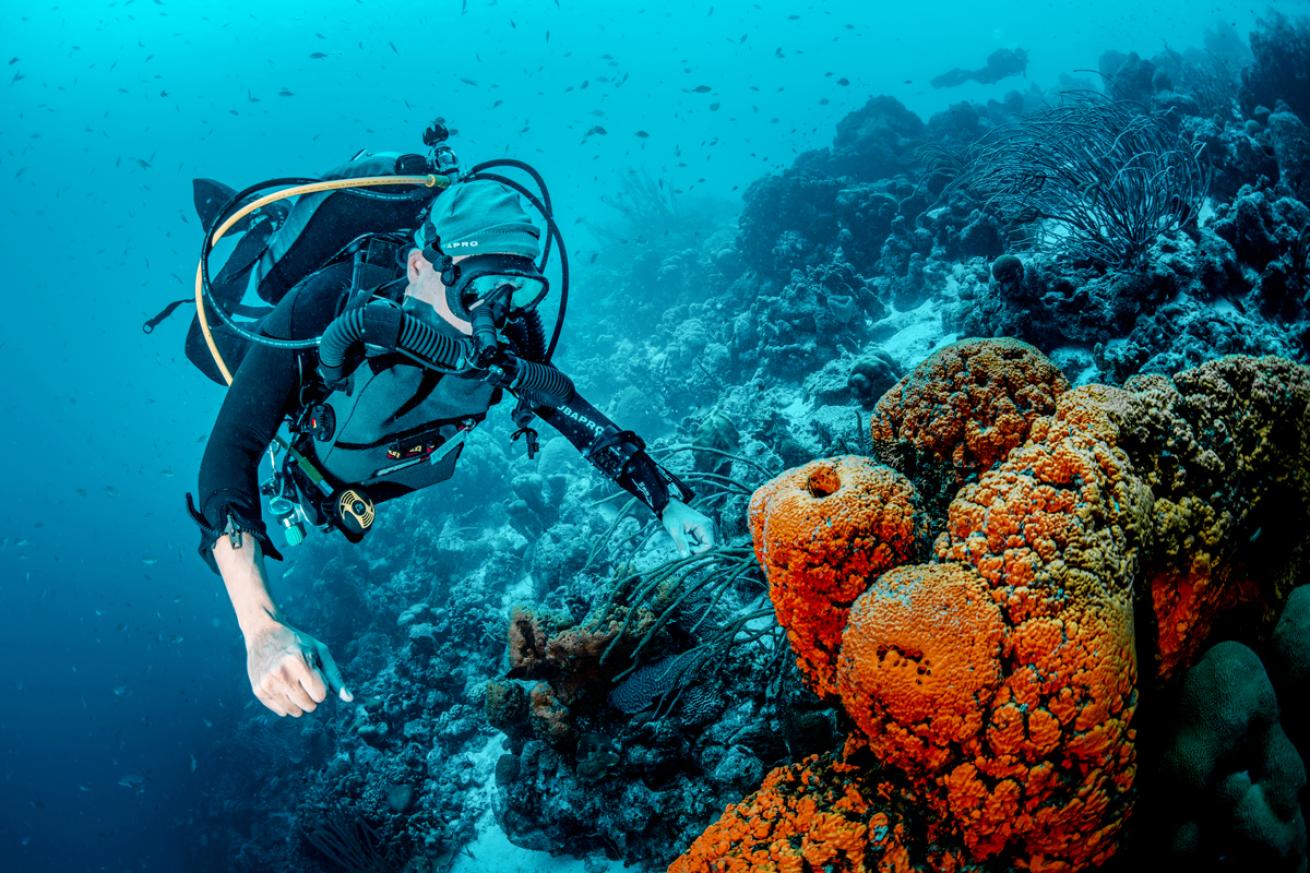
Lorenzo MittigaBervoets during fish survey dive on Bonaire, using a rebreather to limit wildlife disturbances.
Q: In the past, you worked with fishermen in Africa to convert them to marine park rangers. What techniques do you use to incentivize individuals to conserve their native lands/resources?
A: These initiatives take quite some effort with the particular stakeholder group you’re trying to reach; in Africa it meant assimilating into the culture, listening to their story and collaborating with fishers to either use sustainable fishing practices—they were still using poison and bomb fishing while I was there—or to explore alternative sustainable livelihoods as scuba guides, rangers, naturalists, etc.
Q: What’s been your most satisfying moment?
A: Without a doubt, the establishment of the marine protected area for Sint Maarten, as well as the efforts that led to having sharks listed as protected within the wider Caribbean Sea through the UN Convention for Biodiversity of the Caribbean Sea, and having the honor of naming the marine mammal and shark sanctuary for the Dutch Caribbean, one of the largest in the region. The sanctuary is called Yarari, which means “a fine place” in the native Taino language of the original inhabitants of the Caribbean.
Q: What’s been your most surprising moment?
A: To work with fishermen and experience how enthusiastic they are about conserving the species and ecosystems they depend on.
Fishermen often get loads of criticism for the perceived impact they have on the ecosystems and habitat of the Caribbean. But Caribbean fishers are just as eager and willing to participate and help guide conservation actions as any other stakeholder. They just need to be heard, involved and given ownership of the ecosystems they depend on.
Fishers often get criticized for doing an activity that is not only economically important but also has socio-cultural implications. So for marine conservation in the Caribbean to be successful, fishers should not be ostracized but included. And they are more than willing to be included!
Each Sea Hero featured in Scuba Diving receives a Seiko SRPD43 watch valued at $525. For our December issue, judges select a Sea Hero of the Year, who receives a $5,000 cash award from Seiko to further their work. Nominate a sea hero at /seaheroes.

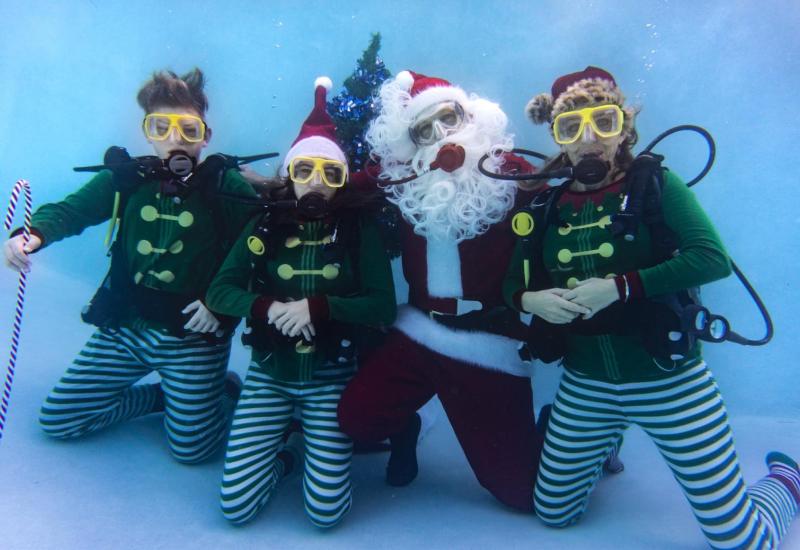
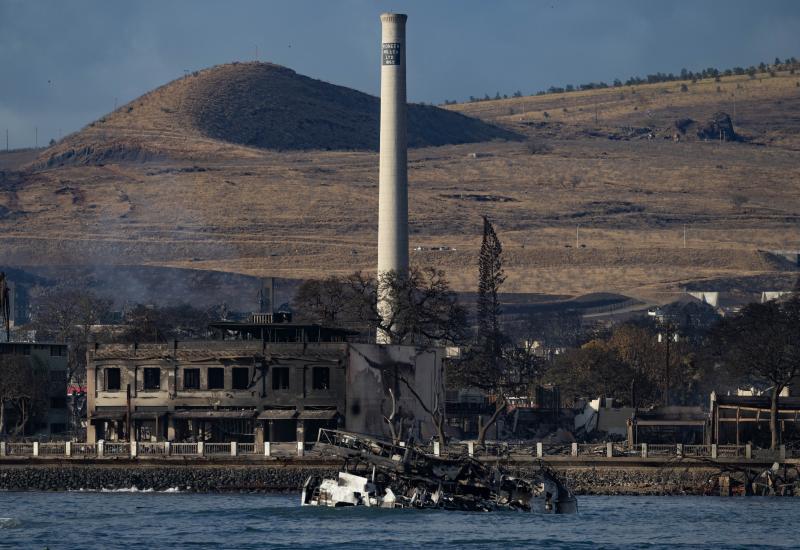
.png?itok=wW_XQefZ)


